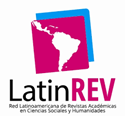Dynamics and group identity among Lima’s gamers, the case of competitiveness in the League of Legends video game
DOI:
https://doi.org/10.21142/DES-1202-2020-0031Keywords:
virtual games, virtual communities, gamers, group identity, electronic sportsAbstract
The aim is to seek to understand the cultural aspects that emerge through group dynamics from the consumption of video games in Lima. Qualitative research was conducted on the social imaginary and practices of gamers from the ANG and SHOT teams of the League of Legends video game, within the local competitive environment. Fieldwork was conducted at the World Cyber Games 2013 Festival-Peru, involving observation and participation in video game booths and related spaces. What is the group identity of these players? The answer involves analysis of cultural variables such as identification, game, performance, territoriality, consumption, distinction and masculinity, in the two representative spaces: the virtual, as a stage where the players are transfigured into characters; and the physical, in which they act as players, through interaction and the use of technological devices. They are «virtual urban tribes», sharing values and interests, whose sense of belonging is based on affective, emotional and competitives.
Downloads
References
Ardévol, E., Roig, A. et al. (2006). Game pleasures and media practices. Open University of Catalonia, 9th Bi-Annual Conference. Bristol, UK.
Bourdieu, P. (2011). Las estrategias de la reproducción social. Buenos Aires: Siglo Veintiuno.
Bourdieu, P. (2000). Poder, derecho y clases sociales. Bilbao: Desclée de Brouwer.
Cánepa, G. (Coord.) (2001). Identidades representadas: performance, expe riencia y memoria en los Andes. Lima: Fondo Editorial de la Pontificia Uni versidad Católica del Perú.
Douglas, M. (1979). El mundo de los bienes. Hacia una antropología del con sumo. Ciudad de México: Grijalbo.
Fernández, J. (2013). Capital simbólico, dominación y legitimidad. Las raí ces weberianas de la sociología de Pierre Bourdieu. Papers, revista de so ciología, 98(1).
Gee, J. P. (2006). Why game studies now? Video games: A new art form. Games and Culture, 1(1), pp. 58-61.
Gutmann, M. (1998). Traficando con hombres: la antropología de la mas culinidad. Horizontes Antropológicos, 5(10).
Hine, C. (2010). La etnografía virtual. Barcelona: UOC.
Huizinga, J. (1972). Homo ludens. Buenos Aires: Emecé.
Levis, D. (1997). Los videojuegos, un fenómeno de masas. Qué impacto pro duce sobre la infancia y la juventud la industria más próspera del sistema au diovisual. Barcelona: Paidós.
Maffesoli, M. (1990). El tiempo de las tribus: el declive del individualismo en las sociedades de masas. Barcelona: Icaria.
Pink, S., Postill, J. et al. (2016). Digital ethnography: Principles and practice. Los Angeles: SAGE.
Rheingold, H. (1996). La comunidad virtual: una sociedad sin fronteras. Bar celona: Gedisa.
Soja, E. (1971). The political organization of space. Washington: Association of American Geographers, Commission on College Geography.
Turner, V. (1987). Anthropology of performance. New York: PAJ Publications.
Villapolo, L. (1991). Estudio exploratorio acerca de la identidad grupal en me dios alternativos. Lima: Pontificia Universidad Católica del Perú, Facultad de Letras y Ciencias Humanas.
Downloads
Published
Issue
Section
License

Esta obra está bajo una licencia http://creativecommons.org/licenses/by-nc-sa/4.0/





















